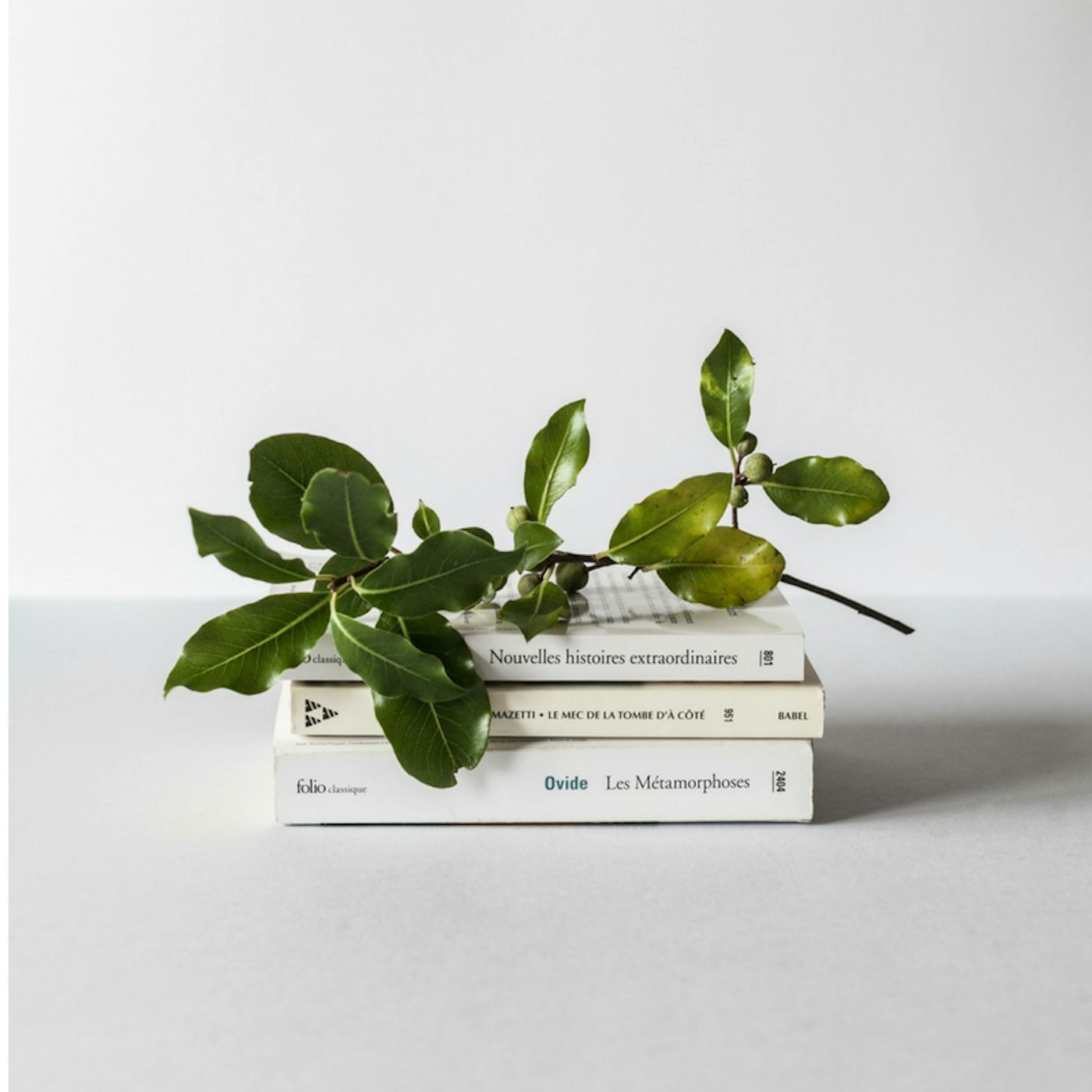The Forgotten Art of Reading: An English Teacher’s Guide
by Susan Alnajafi in Culture & Lifestyle on 23rd December, 2020

During the excavation of a sanctuary in ancient Pyrgi, Italy during 1964, three gold plates that date back to 500 BC were found. Although two of these are written in Etruscan text and one written in Phoenician, historians gathered that these were letters of dedication and love from King Thefarie Velianas to the Phoenician goddess Astarte. Containing holes around the edges, scholars think they were once bound together, making it one of the first books to ever be known to mankind. The goddess Astarte was said to have treasured these letters and read them frequently.

As the doors of the New York library closed shut behind me the powerful musk of sensitive, untouched spines, alarmed my senses. Colours – all I could see were hues; shades; pigments of colours peppered across dominoes of fragrant wooden shelves. They were weeping; the books were weeping. It was the 16th of February 2017 and thanks to TV programmes like Gossip Girl and Law & Order, I had visualised this institution to be largely occupied with an influx of people wanting to study, read or even simply admire the plethora of books available. I wandered around the entire library at 5 o’clock on a Sunday afternoon and spotted only five people actually, physically reading a book. I should say that three of those people were simultaneously distracted by their phones. Upon seeing this, a series of questions were planted in my head: did this mean that books were becoming obsolete? Had the act of reading become an unbearable, forced chore rather than a cosmic journey of catharsis? Or simply, was it just not de rigueur for people to read for themselves anymore? As far as we all know, the internet could have provided abundant responses and solutions to those questions. I resisted the urge and decided to look for answers by doing what history taught and encouraged us to do most: read.
Related
Books You Need to Read About the Middle East
Five books you need to read about class
Reading Isn’t Linear
Reading is not a linear practice – it is a spiraling process, with one book overlapping another and reincarnating experiences (which you thought you had forgotten) as if you felt them only an hour ago. Curricula teach you that there is a right and wrong way to read. Do not confuse literacy with reading. They are separate entities which stand strongly together. You build literacy through reading. Reading for knowledge, sheer escapism or for no reason at all – you are still learning, expanding your comfort zone and releasing the cap on your potential. The Learning Zone Model, which was developed by the German adventure pedagogue Tom Senninger, is a helpful model to illustrate how we can identify our learning zones. In the process of learning, we have the following:
‘Comfort Zone’ – this is the zone where you remain within the limits of what you are comfortable with.
‘Stretch Zone’ – this is the zone where you dare to try new things, particularly those that you are either awkward with or are somewhat apprehensive of.
‘Panic Zone’ – this is the zone that you do not want to be in. Moving into this zone simply causes severe fear and can put you off stretching your comfort zone for long periods.
Perhaps your experiences of reading have placed you in the panic zone and you no longer want to touch a book. Or you may feel so at ease and comfortable with it that it no longer exhilarates you. Most brain power is used in the ‘Stretch Zone’ where learning is more likely to take place. The calibre of books and material that you read should be new and fresh to your liking. But again, maybe you simply do not want to leave your comfort zone as reading does compel perseverance and dedication; traits which many find difficult to remain consistent with. Many of my students have told me that they feel anxious about reading because they may lose interest, be too slow and form inconsistencies with it. This may be a contributing factor to why many to look to Wikipedia. I encourage the act of reading as refining a skill and to develop a skill, practice is required. In reality, sometimes taking a step back can also result in taking a step forward. If you need to re-read a page ten times, do it. If you get stuck on a word and can’t move on without finding its meaning, search it. Whatever you do, however long you take, the pages will await your return.
My Relationship With Books
My relationship with reading has fluctuated more than the economy altogether. Although neither of my parents went to university, they were both skilled in the fields of literacy and comprehension because they were always reading a book. Being raised in a multi-lingual household, my mother used to read to me in different languages. At the age of 13, I remember stumbling upon the books that she used to read to me. I realised something extremely peculiar that I had never noticed before. That whole time, she was reading the exact same storybook to me but in different languages. I asked her why she did this and she replied: “Why is it that a book can be written from different perspectives but not read from different perspectives?”. As clichéd as it sounds, my mother was right. Although it was the exact same story, each edition served different words, different images, and a whole different experience. It was from this moment that I began my affinity with etymology – the root meaning of words. A book that has transformed my understanding of language and has me pivoting in the stretch zone is ‘The Etymologicon’ by Mark Forsyth (also known as The Inky Fool). Having read this book, I can now relate an abundance of words in the English language to its equivalent in another language but through its root meaning.
My Anxiety
Many might say that I read this to build academic intelligence – although that happened, it wasn’t the sole purpose. My social and emotional intelligence have been built just as much by understanding the historical and socio-cultural underpinnings of words. Another area that I have an affection for is understanding mental health. Upon being diagnosed with an anxiety disorder, my passion for reading dipped and I turned to the internet for instant comfort, validation, and information. Although I found some useful tools, everything I read on there just made me more anxious. I felt a huge disconnection with so many unfiltered and ambiguous search results and self-destructive comments. Who encouraged me to turn to knowledge rather than information? That’s right, my mother. I began to read a book called ‘On Edge: A Journey Through Anxiety’ by Andrea Petersen. My several moments of catharsis during this book created a small but sure breakthrough for my understanding of what anxiety disorders are and what they can do. To experience catharsis, there needs to be a connection with the topic at hand. What we seem to forget is that reading about topics that you are passionate about is not something that has evolved recently.
From the ancient era until now, the act of reading can birth, reincarnate or even erase experiences for the reader. This is all part of the journey of learning and purifying your academic, social and emotional intelligence.
Susan Alnajafi
Susan Alnajafi is a qualified teacher and presenter from Central West London. She is of Middle Eastern heritage and previously lived in Spain. With a Bachelor's degree and Masters from King's College London and University College London, Susan teaches English and Spanish at a mixed non-selective secondary school in London. This year, she has launched a girls mentoring campaign called 'Be Brave' in line with the Teach First movement to discourage educational inequality. Drawing on her skills and experiences, Susan is a published features writer and has written for Notting Hill and Holland Park Magazine. She has also hosted various events including Shelancer's Hub, 'This Girl Can', and the most recent panel discussion with CEO of Wired PR, as part of Subtle Creatives.